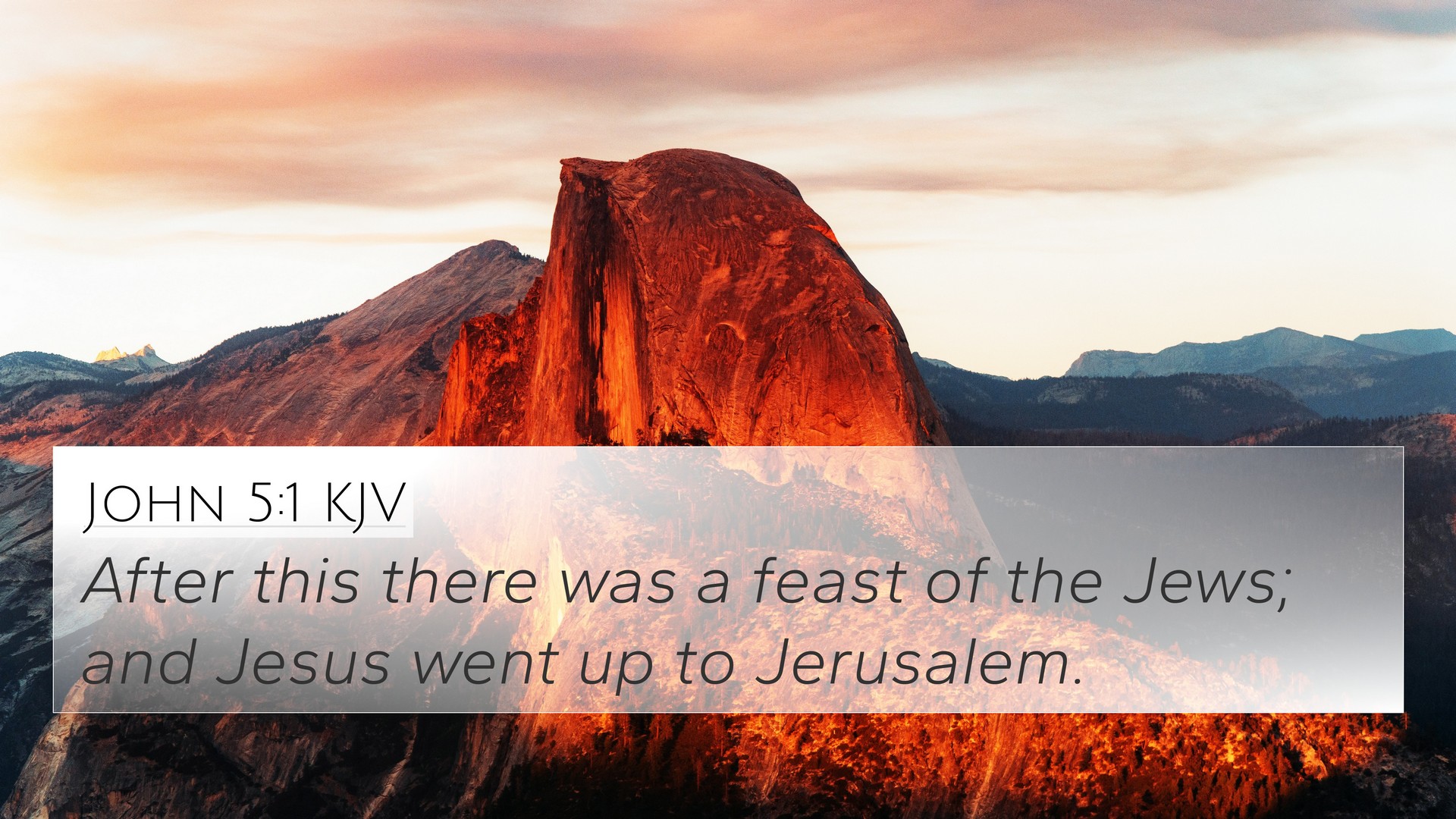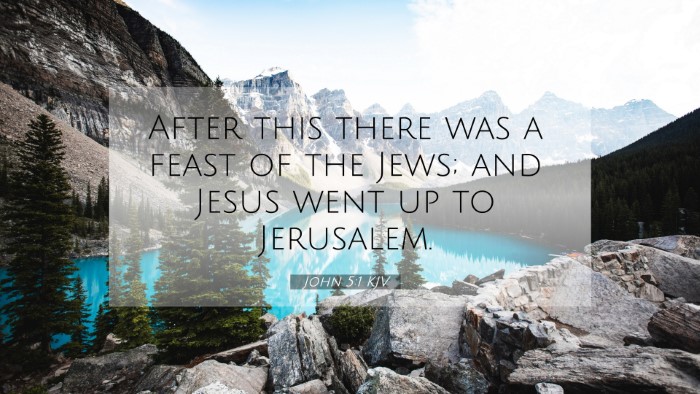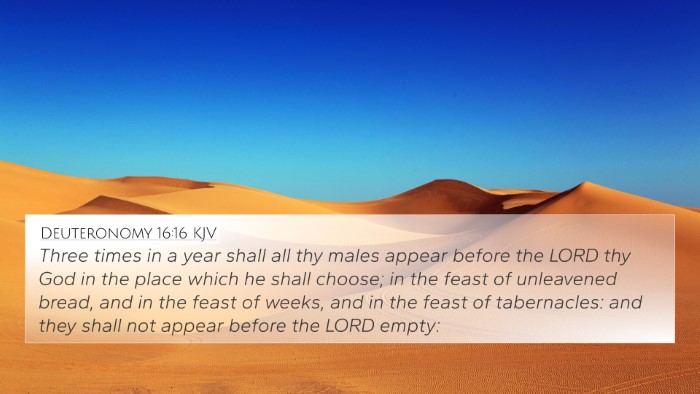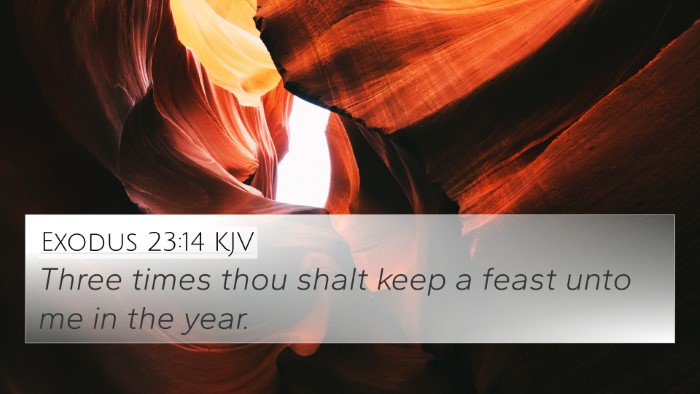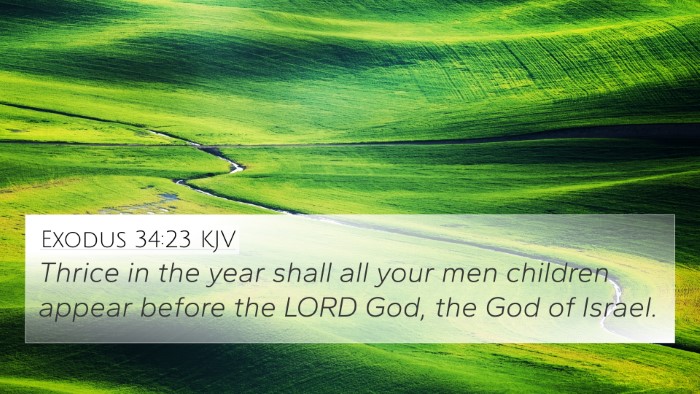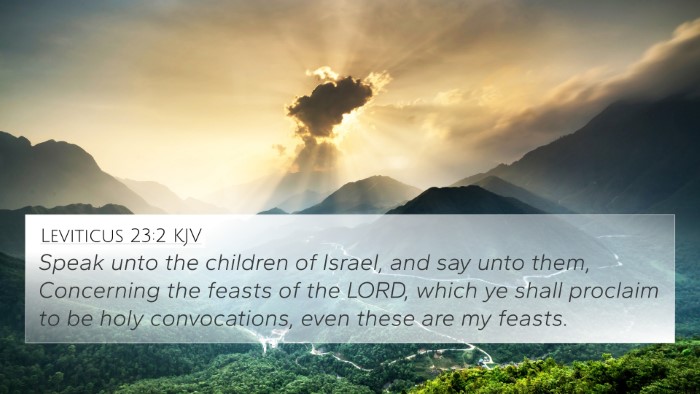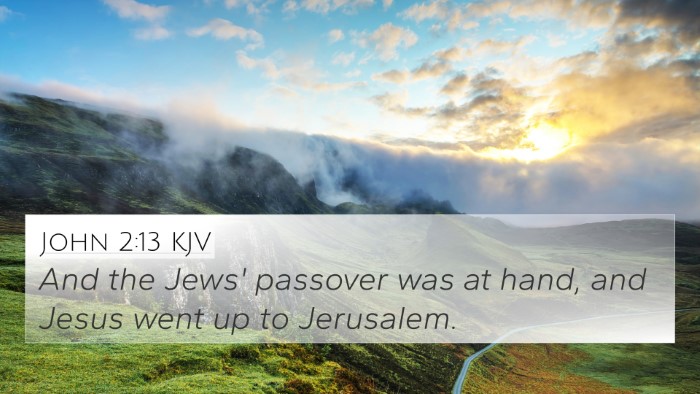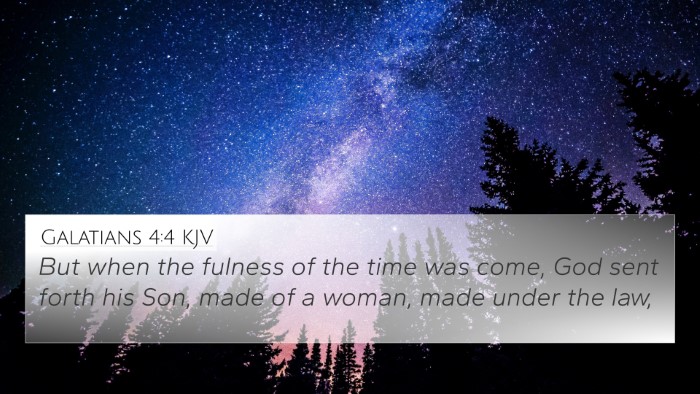Understanding John 5:1
John 5:1 reads: "After this, there was a feast of the Jews; and Jesus went up to Jerusalem." This verse introduces a significant event in the public ministry of Jesus as it sets the stage for the healing at the Pool of Bethesda and the subsequent discourse regarding His authority. The following insights from various public domain commentaries will help elucidate the meaning of this passage and its connections to other scriptures.
Contextual Significance
John 5:1 marks a pivotal moment in the narrative of the Gospel of John. The verse refers to a festival celebrated by the Jews, signifying the importance of religious observance in Jewish culture.
- Matthew Henry: Emphasizes that Jesus' attendance at the feast demonstrates His obedience to the Law and the customs of His people, showing both His humanity and divine mission.
- Albert Barnes: Notes that the "feast of the Jews" is likely one of the three major feasts, either Passover, Pentecost, or Tabernacles, which all Jews were obligated to observe, thereby highlighting the importance of religious festivals in Jewish society.
- Adam Clarke: Inquires the identity of the festival, suggesting it may signify a time of reflection and renewal among the Jewish people, underscoring Jesus’ role in this religious context.
Thematic Connections
John 5:1 connects deeply with various themes in scripture, particularly those dealing with healing, law, and authority.
- Healing: The events that follow this verse establish a powerful narrative about Jesus' ability to heal, linking with Isaiah 53:5, which emphasizes that by His stripes, we are healed.
- Authority: The subsequent dialogues and confrontations illuminate Jesus’ authority over the Sabbath and His divine nature, echoing themes found in Matthew 12:8 and Mark 2:27-28.
Cross-References
This verse interconnects with several other Bible passages that help provide a more comprehensive understanding:
- Isaiah 53:5: A prophetic verse concerning healing.
- Matthew 12:8: Jesus’ declaration as Lord of the Sabbath.
- Mark 2:27-28: The purpose of the Sabbath as serving man.
- John 7:2: Another mention of the Jewish feast, linking festival observances.
- Exodus 23:14-17: The command to observe annual feasts in the Jewish tradition.
- Luke 13:10-17: Jesus healing on the Sabbath, reinforcing His authority.
- Acts 3:6-8: A New Testament parallel healing by Peter, drawing connections to Jesus’ ministry in John 5.
- 1 John 5:14-15: Assurance regarding healing and boldness in prayer.
- Hebrews 4:14-16: The high priestly role of Jesus, emphasizing His compassionate nature.
- Philippians 2:9-11: A declaration of Jesus' exalted status, related to His authority and mission.
Bible Verse Cross-References and Their Importance
Cross-referencing Bible verses enriches our understanding of specific passages. For example, John 5:1 allows us to explore:
- Connections between Bible verses: Understanding Jesus’ actions in line with Jewish law deepens our grasp of the Gospel message.
- Linking Bible scriptures: Connecting Old Testament prophecies with New Testament fulfillments illustrates the continuity of God’s plan.
- Comparative Bible verse analysis: This can reveal themes of healing and authority across different contexts.
- Bible verses that relate to each other: Discovering the relationship between forms of healing in both the Gospels and the Psalms exemplifies particular Biblical themes.
- Scriptural cross-referencing: Examining similar events in the Synoptic Gospels against the Gospel of John can shed light on Jesus’ multifaceted character.
Practical Application: Tools for Cross-Referencing
To delve deeper into the interpretation of John 5:1 and related scriptures, consider using the following tools:
- Bible concordance: A helpful resource for identifying themes and words.
- Bible cross-reference guide: Assists in finding related verses that enhance understanding.
- Cross-reference Bible study: A methodical approach to studying interconnected scriptures.
- How to use Bible cross-references: A guide to effectively utilizing available resources for study.
- Bible reference resources: Various online and physical tools that provide annotations and explanations.
Conclusion
John 5:1 is much more than a simple introduction to an event; it is a verse rich with theological implications and connections to the broader narrative of the Bible. Exploring cross-references can enhance our understanding and application of this scripture. By employing comprehensive Bible study methods, we are better equipped to discern the richness of the Scriptures and cultivate a deeper faith.
